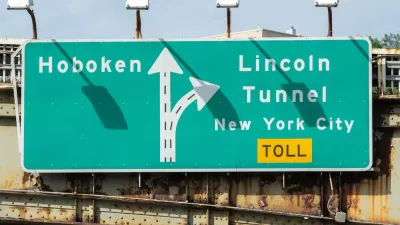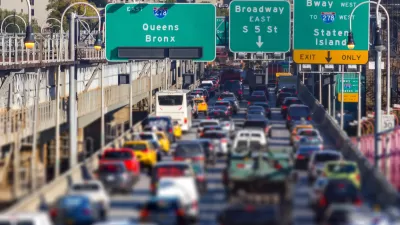Few of us are fully immune from the effects of road rage. Psychologists are asking why driving can provoke changes in behavior—and how to avert them.

Rick Paulas examines the psychology of road rage, delving into why we sometimes behave very differently as drivers and pedestrians. Paulas' observations take direction from the work of Leon James, a psychologist and researcher into driving behavior at the University of Hawaii.
Paulas writes that in modern society, driving an automobile is the most dangerous physical act many of us regularly undertake. From the article: "On the other side of that coin is the sense of safety you have inside of a car. 'It's not like waiting in the bank line, we're not exposed in the same way,' James says. You feel that you're in a protective bubble, that you're Ripley in the Power Loader at the end of Aliens. Despite all your rage, that cage of yours is keeping the other rats out. That allows us the confidence to act out a little more when confronted with annoying behaviors."
As in most other conflicts, mutual escalation is what make road rage dangerous. "It's no accident James uses the word 'duel' when discussing road rage. Duels are, by nature, the result of two people escalating, neither backing down. The first smacks the white glove and demands 'satisfaction,' and the second says, 'yeah, here it is.' While one may be the instigator, the second is perhaps more instrumental in the end result."
FULL STORY: Why We Rage on the Roads—and How to Stop

Planetizen Federal Action Tracker
A weekly monitor of how Trump’s orders and actions are impacting planners and planning in America.

Map: Where Senate Republicans Want to Sell Your Public Lands
For public land advocates, the Senate Republicans’ proposal to sell millions of acres of public land in the West is “the biggest fight of their careers.”

Restaurant Patios Were a Pandemic Win — Why Were They so Hard to Keep?
Social distancing requirements and changes in travel patterns prompted cities to pilot new uses for street and sidewalk space. Then it got complicated.

Maui's Vacation Rental Debate Turns Ugly
Verbal attacks, misinformation campaigns and fistfights plague a high-stakes debate to convert thousands of vacation rentals into long-term housing.

San Francisco Suspends Traffic Calming Amidst Record Deaths
Citing “a challenging fiscal landscape,” the city will cease the program on the heels of 42 traffic deaths, including 24 pedestrians.

California Homeless Arrests, Citations Spike After Ruling
An investigation reveals that anti-homeless actions increased up to 500% after Grants Pass v. Johnson — even in cities claiming no policy change.
Urban Design for Planners 1: Software Tools
This six-course series explores essential urban design concepts using open source software and equips planners with the tools they need to participate fully in the urban design process.
Planning for Universal Design
Learn the tools for implementing Universal Design in planning regulations.
Heyer Gruel & Associates PA
JM Goldson LLC
Custer County Colorado
City of Camden Redevelopment Agency
City of Astoria
Transportation Research & Education Center (TREC) at Portland State University
Camden Redevelopment Agency
City of Claremont
Municipality of Princeton (NJ)





























